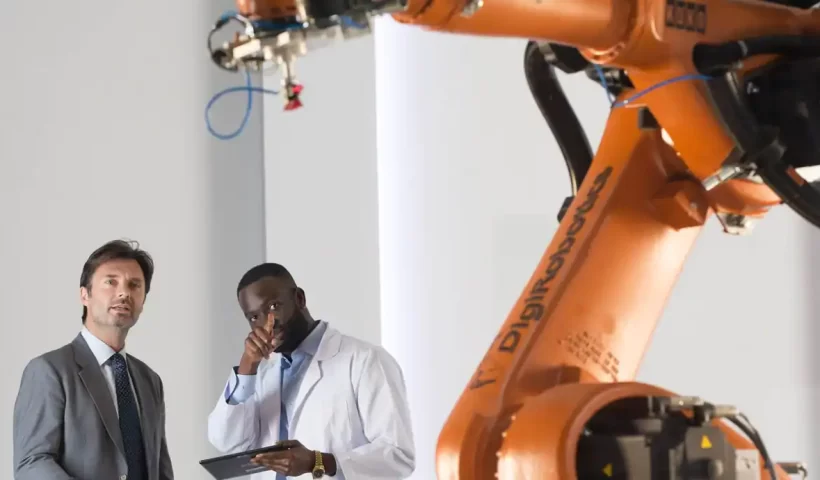Dubai’s infrastructure continues to be the key to its prosperity, and the government has recognized this by dedicating 46% of its 2020 budget to its growth. This dedication to infrastructure development involves work on airport and port facilities as well as public transportation and is essential to assisting a number of economic sectors.
Businesses in Dubai and beyond can apply for e-business residency.
Dubai’s government has made significant infrastructural expenditures, and it also fully supports innovative programs that aim to create an environment where enterprises of the future may prosper.
Dubai, a real-world test site for the future, collaborates with visionary leaders from around the globe to encourage genuine collaboration and creativity. This backing is shown in the government’s establishment of e-business residency, this enables business owners, wherever they are based, to establish virtual firms in Dubai.
Up to ten-year residency permits
Additionally, the city now grants professionals in the medical, scientific, research, and technical domains resident visas valid for up to 10 years. Additionally, Dubai is home to a burgeoning network of incubators and accelerators for startups that are perfectly situated to support companies during their initial phases of growth.
Ideally situated, serving as a testing ground for new ideas
Dubai is strategically situated and can serve as an incubator for a wide variety of enterprises, making it ideal for innovators and those looking to build globally competitive businesses. These four industries are ideal for Dubai.
Healthcare and medicine
By the end of 2021, it is expected that Dubai’s medical and healthcare sector would increase to a value of US$28 billion. According to a report by Fitch Solutions, the healthcare industry in MENA is predicted to increase at a rate of 11.7% compound annual growth rate (CAGR) at constant currency rates, from US$185.5 billion in 2019 to US$243.6 billion in 2023.
Dubai Healthcare City (DHCC), the largest medical free zone in the world, and Emirates SkyPharma, the first and largest multi-airport hub exclusively for temperature-sensitive pharmaceutical shipments, are both located in the city.
A major force behind ICT and technical advancements is health tech.
In order to enable the licensing of new facilities and the application of cutting-edge technology, Dubai Health Authority provides proactive investment facilitation supports and promotes discourse on policies and regulations. This will encourage rollout and increase community access to patient care. Over 75% of outpatient services and over 65% of inpatient services in Dubai are utilized by private sector healthcare providers.
The city is engaged in a number of projects to implement cutting-edge technology in healthcare, including 3D modeling, precision medicine, robotic pharmacy, digitization, health apps, smart fitness, and many others.
Technological innovation
The UAE is one of the top 10 nations in the world, according to KPMG’s Autonomous Vehicles Readiness Index (AVRI), in terms of readiness for driverless vehicles.
Leading logistics technologies will power trade in the future.
The city is also spending a lot of money on incentives to promote the switch to electric vehicles, including free public charging stations, toll-fee exemption, and reductions on vehicle registration.
The fastest transit system in the world moves freight at breakneck speeds.
For instance, the Dubai government is collaborating closely with Virgin Hyperloop One to build the fastest transit system in the world, which would transport both people and freight at previously unfathomable speeds. The cooperation between Virgin Hyperloop One and DP World, which manages Dubai’s ports, is expected to transform Dubai into a regional logistics and support powerhouse.
It is a component of the Cargospeed project of DP World, which seeks to provide superior priority service for on-demand commodities. Not only will freight be delivered at record-breaking speeds, but trucking-like prices will be used to accomplish this. Cargospeed will enable customers to respond swiftly to unexpected needs and keep flexibility at times.
One of the top cities in the world for fashion spending per person
Dubai had one of the highest per-person fashion spending rates in the world last year, at $1,600 USD.Due to its proximity to African and Indian production centers, Dubai makes logistics for the fashion industry more easier. The government of Dubai has reacted by opening the College of Fashion and Design to establish a top-notch educational institution that will promote the rise of both local and international talent in light of the growing presence of international brands and the upsurge in popularity of regional brands such as Elie Saab, House of Nomad, and more.



